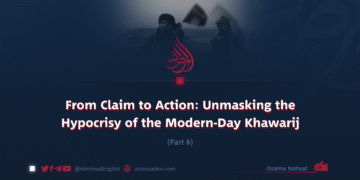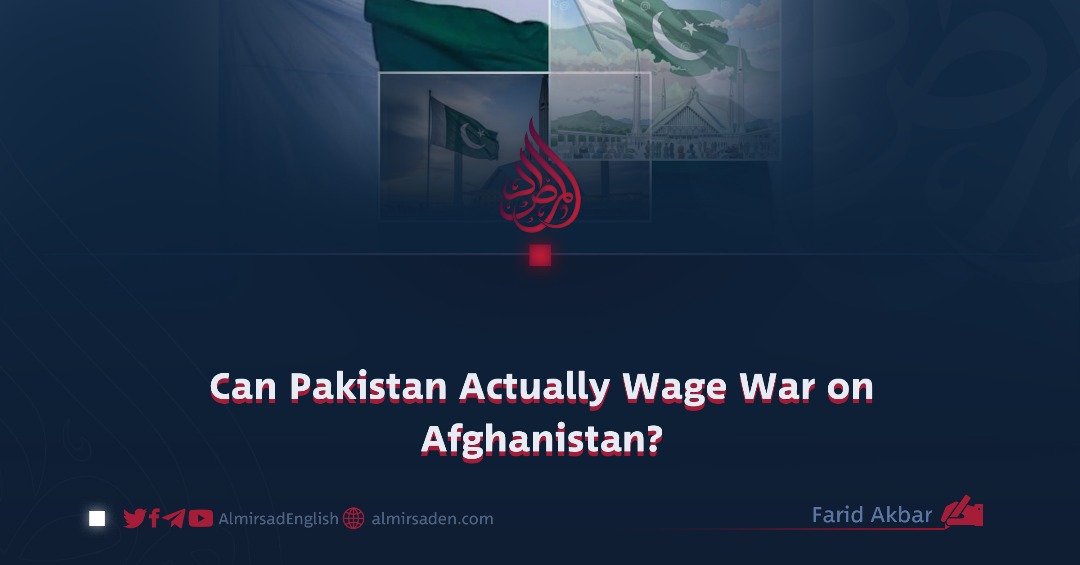By Farid Akbar
On October 25, Pakistan’s inept defense minister, Khawaja Muhammad Asif, appeared on television from Sialkot to issue a startling threat: if the Istanbul peace talks meant to consolidate the Doha ceasefire fail, Pakistan will launch open war against Afghanistan. His statement immediately raises doubts about whether Islamabad has the political, economic, or military capacity to sustain such a confrontation.
An open war is no minor engagement. It is formal, public, and absolute, a total mobilization in which borders, geography, and restraint cease to matter. Every branch of the military, from the air force to cyber units, is deployed with the singular aim of annihilating the enemy’s forces, capturing territory, or toppling a government.
This raises a crucial question: to what extent does Asif’s claim reflect reality? Is Pakistan’s current regime truly capable of waging war against Afghanistan? That is the question this commentary seeks to answer.
The Pakistani state is drowning in crises that would cripple even a stable nation. Armed uprisings, crushing debt, and the erosion of public trust each pose a serious threat to its survival. Together, they expose a regime teetering on the edge of collapse.
In Khyber Pakhtunkhwa and Balochistan, armed groups like Tehrik-i-Taliban Pakistan (TTP) and various Baloch separatist factions have kept the country’s security forces locked in an unending war of attrition. Their frequent guerrilla strikes and temporary takeovers of towns have revealed Pakistan’s fragile security structure and the glaring incompetence of its leadership. These internal conflicts have sapped the army’s strength and morale, leaving it ill-prepared for an external war.
Equally concerning is Pakistan’s economic situation. Its debt has surpassed $280 billion, consuming the bulk of national revenue in repayments. Inflation has soared to unbearable levels, unemployment continues to climb, and foreign investment has all but evaporated. Public frustration simmers dangerously, while the government lacks both the means and legitimacy to restore even a semblance of stability.
Politically, Prime Minister Shehbaz Sharif’s coalition stands on unstable ground. The 2024 elections were tainted by allegations of widespread fraud, and Imran Khan’s party still rejects the results. Military interference, suppression of dissent, and worsening poverty have created a government widely viewed as self-serving rather than protective of the people. The result is a state plagued by instability, directionless leadership, and a growing sense of desperation within its elite.
And yet, in the midst of this chaos, Pakistan’s defense minister continues to threaten war on Afghanistan. Reality, however, has already tested these ambitions. When Pakistani troops previously attacked Afghan territory, they were met with fierce and disciplined resistance. The Afghan forces’ decisive counterattack inflicted heavy casualties, forcing Islamabad to plead with Arab mediators and appeal to Kabul for a ceasefire.
How, then, can such an exhausted, internally collapsing regime, which lacks the capacity for a ground war even against a few Afghan Mujahideen, have its defense minister appear on television to make such meaningless statements and threaten an open, full-scale war?
It is possible, in a fit of political recklessness, that Pakistan might attempt such folly if the peace talks collapse. But the outcome would be predictable. Both Pakistan and the world know which side would emerge triumphant: the Islamic system and the resilient, unyielding people of Afghanistan.
This is not speculation or bravado. It is a truth repeatedly proven to powers far greater than Pakistan. Britain, the former Soviet Union, and the United States, each mightier than Pakistan by every measure, invaded Afghanistan with overwhelming force and fled in humiliation. Should Pakistan attempt the same mistake, it will learn the same lesson, that Afghanistan may be challenged, but it can never be conquered.



















































